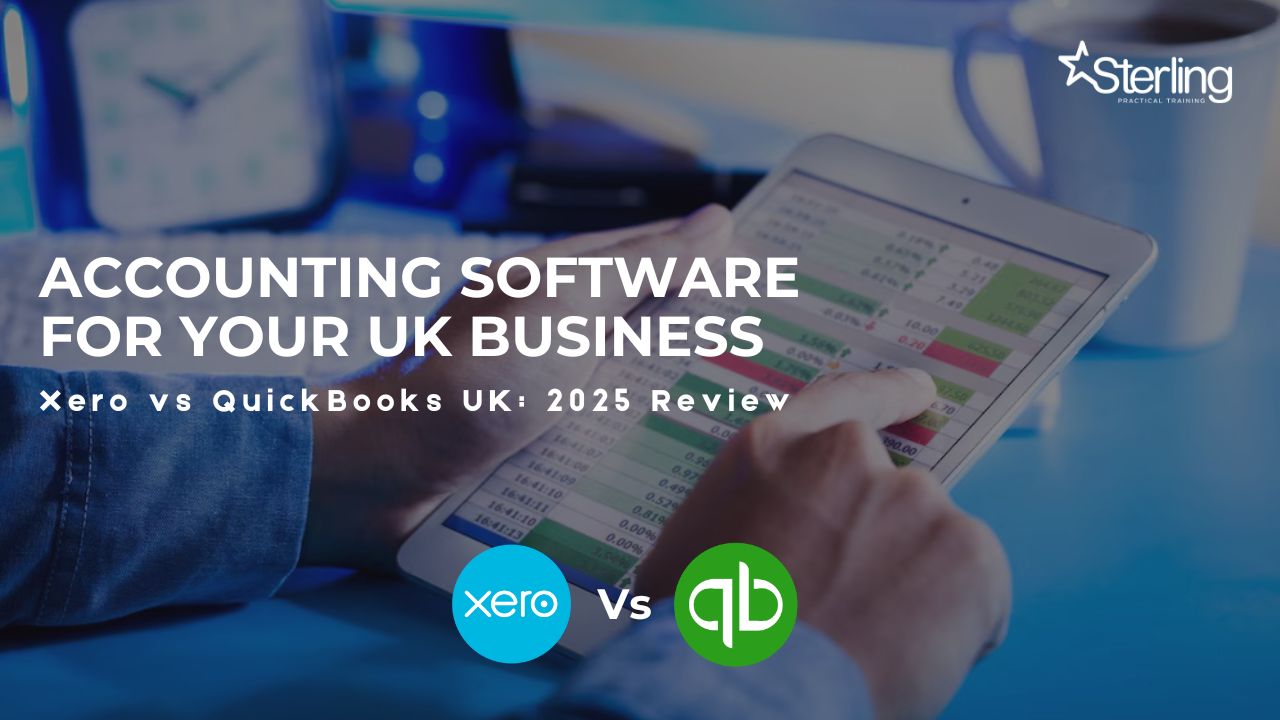Running a business in the UK comes with specific financial and legal obligations, especially under HMRC’s Making Tax Digital (MTD) initiative. For this reason, cloud-based accounting software is no longer a luxury—it’s a necessity. UK companies, whether startups or SMEs need platforms that streamline invoicing, VAT submissions, payroll processing, and compliance with ease.
Overview of Cloud Accounting
Cloud accounting tools like Xero and QuickBooks have transformed how businesses manage their books. These tools offer automation, remote access, integration with banking systems, and real-time financial reporting. But which one is truly better for UK businesses in 2025?
Xero vs QuickBooks UK: A Snapshot Comparison
Key Differences at a Glance
Feature | Xero | QuickBooks |
User Interface | Clean, modern UI | Friendly and intuitive |
Bank Feeds | Yes, automatic | Yes, automatic |
MTD Compliance | Fully compliant | Fully compliant |
Payroll Integration | Advanced add-ons | Built-in payroll features |
Inventory Tracking | Advanced in higher plans | Available in all plans |
Mobile App | Yes (iOS & Android) | Yes (iOS & Android) |
Pricing | Slightly higher | More budget-friendly |
Features Comparison: Xero vs QuickBooks UK
Invoicing
Both platforms let you create professional, branded invoices. However, Xero allows unlimited invoicing across all plans, while QuickBooks restricts this in lower-tier plans.
Bank Reconciliation
Automated bank feeds and reconciliation are standard in both. QuickBooks, however, tends to categorise transactions slightly more intelligently using AI.
Payroll
QuickBooks includes payroll in some UK plans. Xero, on the other hand, offers it as a paid add-on but with superior customisation customisation and employee management.
Inventory Management
- QuickBooks supports real-time inventory tracking in its base plan.
- Xero provides more advanced features like cost tracking and reorder levels—but only in its higher-tier packages.
Reporting
Both platforms provide robust reporting. Xero’s real-time dashboard stands out for its customizability, whereas QuickBooks focuses on detailed financial insights for SMBs.
Ease of Use and User Experience
User Interface Design
- Xero offers a modern, minimalistic design with more customisable customisable dashboards.
- QuickBooks has a more beginner-friendly layout, which is great for those transitioning from manual accounting.
Mobile App Experience
Both apps are top-rated in the UK for mobile functionality. QuickBooks’ mobile app shines with features like receipt capture and mileage tracking, while Xero’s app feels more intuitive for managing invoices and cash flow on the go.
Scalability and Suitability for Business Sizes
QuickBooks is a great start for its affordability and guided setup.
For SMEs
Xero stands out for growing businesses that need more integrations, advanced reporting, and multi-currency support.
For Larger Enterprises
Neither is ERP-level, but Xero supports better third-party integration for scale.
- Xero for UK Businesses
Key Strengths of Xero in the UK Market
- Designed with UK compliance in mind
- Loved by accountants for detailed control
- Real-time data access and reporting
Common Industries Using Xero
- Creative agencies
- Tech startups
- Legal services
- Nonprofits
- QuickBooks for UK Businesses
Why QuickBooks is Popular in the UK
- Long-established brand recognition
- User-friendly for beginners
- Excellent mobile features for contractors
Industries Best Served by QuickBooks
- Construction
- Retail
- Freelancers
- Tradespeople
Data Security and Compliance in the UK
QuickBooks is a great start for its affordability and guided setup.
For SMEs
Xero stands out for growing businesses that need more integrations, advanced reporting, and multi-currency support.
For Larger Enterprises
Neither is ERP-level, but Xero supports better third-party integration for scale.
- Xero for UK Businesses
Key Strengths of Xero in the UK Market
- Designed with UK compliance in mind
- Loved by accountants for detailed control
- Real-time data access and reporting
Common Industries Using Xero
- Creative agencies
- Tech startups
- Legal services
- Nonprofits
- QuickBooks for UK Businesses
Why QuickBooks is Popular in the UK
- Long-established brand recognition
- User-friendly for beginners
- Excellent mobile features for contractors
Industries Best Served by QuickBooks
- Construction
- Retail
- Freelancers
- Tradespeople
Pros and Cons Summary Table
Feature Area | Xero – Pros | Xero – Cons | QuickBooks – Pros | QuickBooks – Cons |
Ease of Use | Clean UI, custom dashboard | Learning curve | Simple, user-friendly | Some features hard to locate |
Features | Strong inventory, good CRM links | Limited features in lower plans | Rich mobile features, great invoicing | Payroll extra in most plans |
Scalability | Great for growth | Pricier for small businesses | Affordable for startups | May not scale as smoothly |
Support | 24/7 email, forums | No phone support | Live chat & phone support | Community responses slower |
Final Verdict: Which Software Wins in the UK?
Choosing Based on Business Needs
Your business size, industry, and budget will dictate the right choice. QuickBooks wins for simplicity and pricing, while Xero leads in features and integrations.
Recommendation for UK Companies
For service-based or low-complexity businesses, go with QuickBooks. If your business is growing or needs tailored reporting, choose Xero. Both integrate smoothly with outsourced accounting firms like Star Sterling Outsource.




